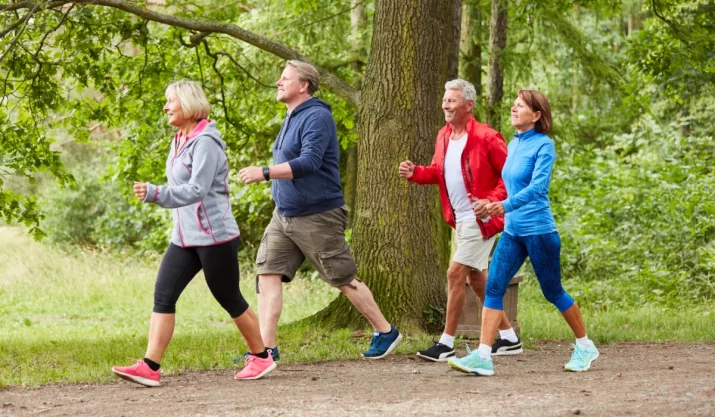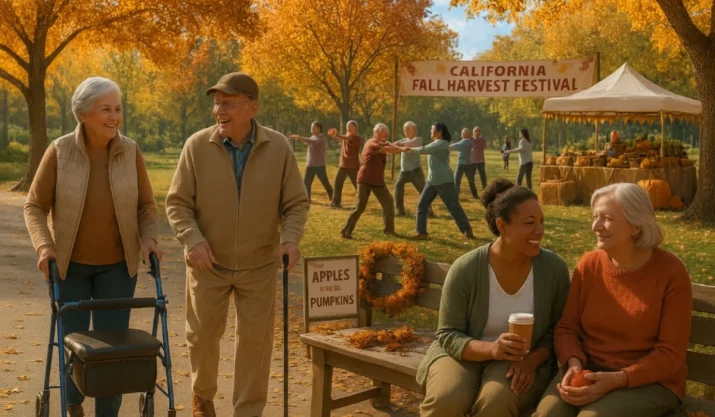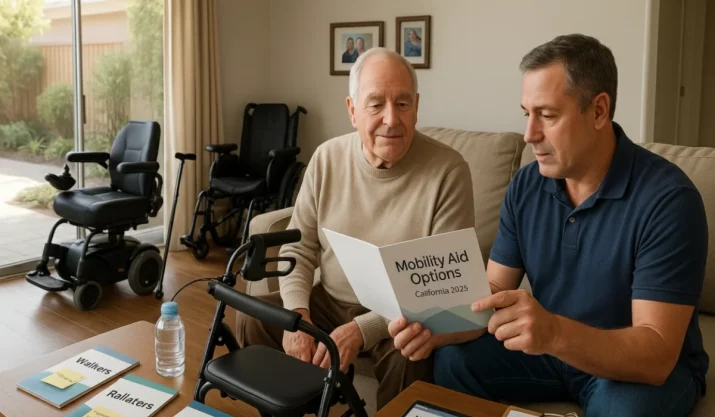The Link Between Mobility and Overall Senior Well-being

Table of Contents
- Key Takeaways
- Physical Health Outcomes Are Tied to How Much You Move
- Mental Health Is Closely Linked to Physical Independence
- Preventing Falls Starts With Better Mobility Tools
- Family Dynamics Improve When Mobility Needs Are Met
- Daily Living Becomes More Manageable With the Right Support
- Make Your Home Work for You With Mobility Solutions That Support Well-Being
As you age, your ability to move freely often has a bigger impact on your quality of life than you might expect. In California, especially, where outdoor lifestyles are common and many seniors live in multilevel homes, maintaining mobility is essential to your well-being.
This article will walk you through the direct and meaningful ways senior mobility influences every part of life, from emotional health to physical safety.
Key Takeaways
- Mobility helps older adults stay healthy by supporting regular movement, strength-building, and managing conditions like diabetes or high blood pressure.
- Losing mobility can affect mental health by limiting social time, creating isolation, and reducing access to community or family life.
- Using stair lifts, rollators, or home modifications lowers the risk of falls and helps seniors feel safe doing everyday things.
- California Mobility offers home evaluations and installs equipment like ramps and lifts to help seniors stay independent at home.
Physical Health Outcomes Are Tied to How Much You Move
Staying active is one of the most effective ways to prevent chronic disease in older adults. Seniors who maintain mobility are more likely to follow a consistent exercise program or even just get in enough daily movement to control blood pressure and sugar.
For those with limited mobility, using appropriate mobility aids like quad canes, rollators, or scooters can make movement safer and more achievable.
If you’ve ever worked with a physical therapist or occupational therapist, you’ve probably heard about how targeted mobility exercises help preserve strength and balance, especially in the upper body and core.
These core exercises can be the difference between relying on others and managing your daily tasks independently.
Mental Health Is Closely Linked to Physical Independence
There’s a strong emotional cost to losing mobility.
Many older adults begin to feel socially isolated, anxious, or even depressed when they can no longer get out on their own.
In communities across California, from urban LA to quiet coastal towns, public transportation isn’t always reliable. That makes access to mobility scooters or power wheelchairs a real lifeline, especially when walking aids no longer cut it.
Being able to get to a park, visit a loved one, or attend a local non-profit event can help you stay mentally sharp and emotionally fulfilled.
These daily activities may seem simple, but they hold deep emotional weight.
Preventing Falls Starts With Better Mobility Tools
Falls are one of the most common reasons older adults end up in emergency rooms, and many of those happen at home. And the risks increase when mobility is compromised.
The right tools, from indoor stair lifts to all-terrain rollators with a suitable weight capacity, help minimize fall risks while restoring confidence.
Fall prevention is not just about avoiding injury. It’s about avoiding the cascade of complications that can follow: surgery, rehab, hospital stays, and long-term care.
With better mobility support, you reduce the chance of losing your independence due to a preventable accident.
Family Dynamics Improve When Mobility Needs Are Met
When a family member loses mobility, it often shifts daily responsibilities onto others.
Caregivers, whether spouses, adult children, or neighbors, may feel overwhelmed if there isn’t a plan or equipment in place to help. On the other hand, when a loved one uses mobility aids to safely get around, it eases stress on everyone.
This doesn’t just improve logistics; it strengthens relationships.
Seniors feel more dignified when they don’t have to rely on others for every basic need. Caregivers, in turn, can focus on companionship instead of constantly worrying about safety or falls.
Daily Living Becomes More Manageable With the Right Support
Tasks like cooking, bathing, and getting out of bed might seem routine, but for older adults with limited mobility, these can be huge hurdles.
Whether you’re recovering from surgery or living with arthritis, assistive devices and home modifications, such as ramps or stair lifts, help you regain control of daily living.
Some people benefit from physical therapy to relearn basic movements, while others need walking aids like crutches or even heavy-duty power chairs.
The goal is the same: to complete daily activities without pain, fear, or exhaustion.
Make Your Home Work for You With Mobility Solutions That Support Well-Being
If your mobility isn’t what it used to be, or if you’re helping a loved one stay safe at home, it may be time to rethink how your space supports you.
From stair lifts that fit your home’s layout to accessibility solutions like ramps and home elevators, California Mobility is here to help you move confidently.
Not sure where to start?
We offer in-home assessments to recommend the right equipment for your needs.
Whether it’s climbing stairs with ease or navigating multi-level living, we’ll help you stay active and independent, right where you belong.
Mobility should never be a barrier to your independence. Let’s make your home work for you. Reach out for a personalized assessment today.






